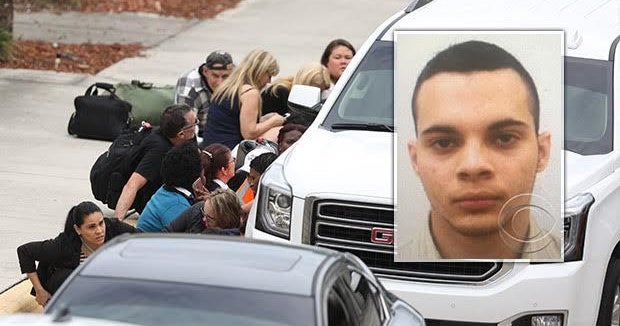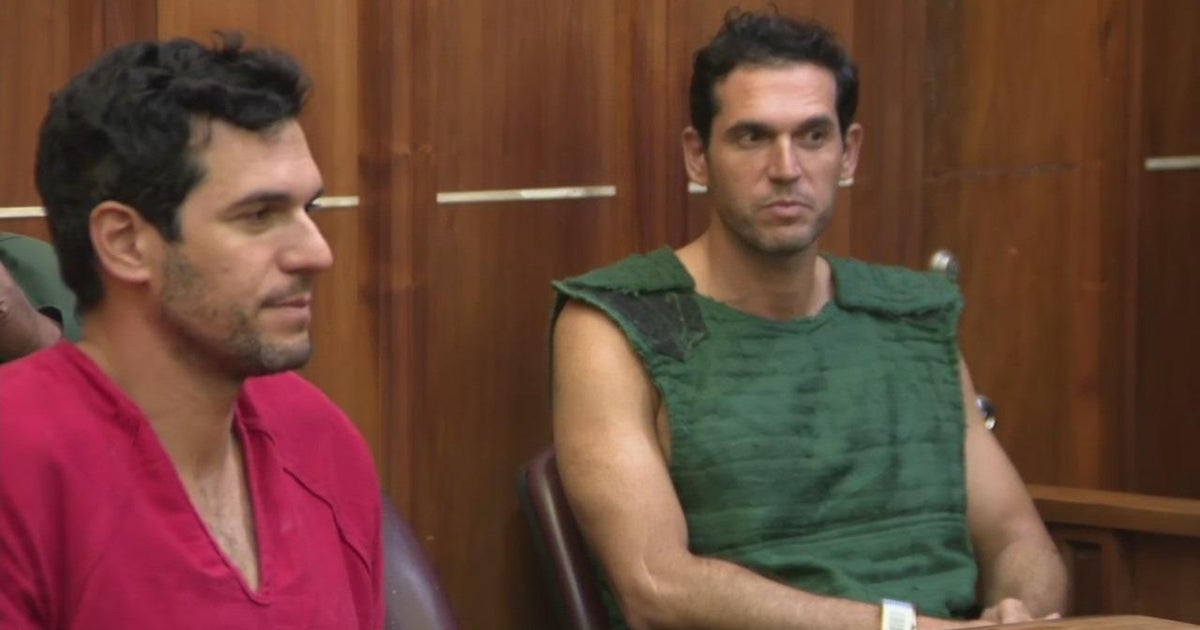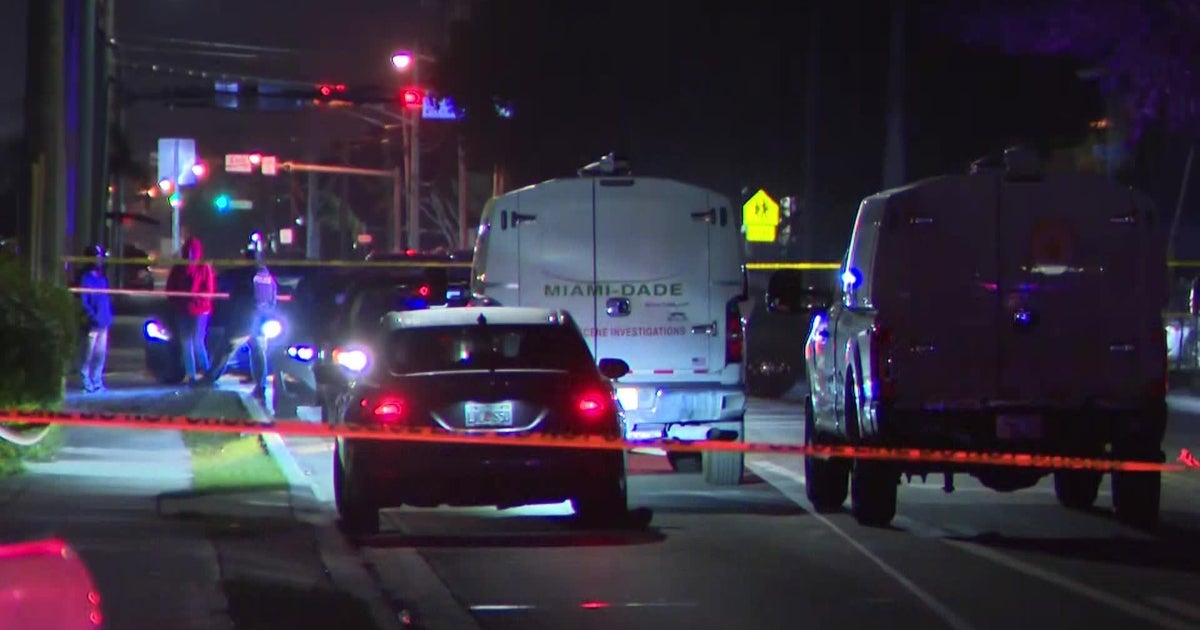Jury questioning set to begin in trial of former Marjory Stoneman Douglas High resource officer Scot Peterson
FORT LAUDERDALE - Jury questioning is set to begin in the trial of former Broward school resource officer Scot Peterson.
He's facing eleven charges for remaining outside of Marjory Stoneman Douglas High School while a gunman roamed the halls of the school, shooting and killing seventeen people inside.
Peterson, 60, is charged with seven counts of felony child neglect for four students killed and three wounded on the 1200 building's third floor. Peterson arrived at the building with his gun drawn 73 seconds before Nikolas Cruz reached that floor, but instead of entering, he backed away as gunfire sounded.
Peterson is also charged with three counts of misdemeanor culpable negligence for the adults shot on the third floor, including a teacher and an adult student who died. He also faces a perjury charge for allegedly lying to investigators. He could get nearly a century in prison if convicted on the child neglect counts and lose his $104,000 annual pension.
Prosecutors did not charge Peterson in connection with the 11 killed and 13 wounded on the first floor before he arrived at the building. No one was shot on the second floor.
Peterson has claimed that he didn't go inside the building because he didn't know where the shooting was coming from and his attorneys argue he wasn't equipped to face a shooter with an ar-15.
But prosecutors and Parkland parents argue he could've helped find the shooter faster if he had gone inside.
"School resource officers need to be carefully selected and specially trained to do the job that they are tasked with doing. They no longer can be that officer that's at the end of their career, in their late 50s. It's no longer a job just to sit behind the desk," said Max Schachter who lost his son, Alex, in the 2018 mass shooting.
Peterson "is just a coward," parent Andrew Pollack said, calling him an obscenity. His 18-year-old daughter Meadow was the adult student murdered on the third floor.
"He wouldn't have gone in with full body armor and a bazooka," Pollack said. Other victims' relatives have made similar statements.
A Broward sheriff's deputy for 32 years, Peterson had been at Stoneman Douglas for nine years after 19 years at other schools. He said he's"eager" for the trial to start.
"I want the truth to come out, and if it is going to be through a trial, so be it," Peterson said. "Not only the people in Florida, the country, and most importantly the families, they need to know the truth about what happened, because unfortunately it has never been told."
Peterson retired shortly after the shooting and then was fired retroactively.
To gain a conviction, prosecutors must convince jurors that Peterson knew Cruz was firing inside the building and that his actions and inaction exposed the victims to harm.
Security videos show that 36 seconds after the attack began, Peterson exited his office about 100 yards from the 1200 building and jumped into a cart with two unarmed civilian security guards, according to a state report. They arrived at the building a minute later.
Peterson got out of the cart near the east doorway to the first-floor hallway. Cruz was at the hallway's opposite end, firing his AR-15-style semiautomatic rifle.
Peterson, who wasn't wearing a bullet-resistant vest, didn't open the door. Instead, he took cover 75-feet away in the alcove of a neighboring building, his gun still drawn.
The shooting "was so loud and so close. I thought it was probably outside," Peterson told investigators two days after the massacre.
He said he heard "two, three" shots. The security guards told investigators they heard many more shots than three and it was clear they came from the building. Peterson's attorney, Mark Eiglarsh, said he will call 22 witnesses who will testify they also thought the shots were coming from outside the 1200 building.
Inside, Cruz climbed to the building's upper floors, firing approximately 70 more shots over nearly four minutes.
Outside, Peterson radioed arriving deputies to stay clear of the building. He said he didn't notice when bullets smashed into a second-floor window about 70 feet from where he stood.
Peterson didn't leave his spot for 48 minutes. That was 45 minutes after the shooting ended and 40 minutes after off-campus officers stormed inside, finding carnage on the first and third floors. Cruz had fled.
For Peterson to be convicted of child neglect, prosecutors must first show he was legally a caregiver to the juvenile students. Florida law defines a caregiver as "a parent, adult household member or other person responsible for a child's welfare."
Eiglarsh has argued there is an exemption for most police officers that covers his client. Circuit Judge Martin Fein ruled that is for the jury to decide, noting that Florida courts have found babysitters, landlords and even kidnappers to be caregivers.
If jurors find Peterson was a caregiver, they then must determine whether he made a "reasonable effort" to protect the children or failed to provide the care necessary to maintain their health.
Eiglarsh has argued that Cruz had a superior firearm and Peterson would have risked death by pursuing him. The state report says Peterson had completed three active shooter courses over the years that teach tactics for such situations.
"I predict that at least one juror will decide that while Peterson was the wrong man in the wrong place at the wrong time, holding him criminally accountable is simply ... too much," said Robert Jarvis, a Nova Southeastern University law professor.
That would result in a hung jury.




